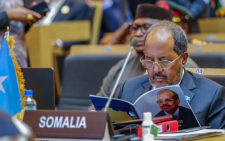Entertainment segment: Great digital shift being felt currently in the world

The entertainment segment has been one of the major beneficiaries of the great digital shift being felt currently in the world. And as Harriet James writes, YouTube is playing a huge role for entertainers in ensuring they get the revenue, as more people switch from the traditional way of doing business.
Currently, almost every artiste is using online platforms to host a variety of their digital content such as live shows, music videos and other similar content, not just to make money, but also to connect with their fans.
These platforms have now become their jukebox, as they are satisfying their desire to make revenue outside the traditional way of selling their content, marketing or audience connection.
It is for this purpose that recently, YouTube Music held in Nairobi the first ‘Conversations and Cocktails with YouTube Music’ Kenya Edition, where artistes and other industry players gathered to be informed and educated about key features on YouTube that are vital in maximising their revenue streams.
As one of the biggest music search engines in the world, statistics by YouTube show that that in 2020, the platform recorded more than two billion logged-ins per month, with more than 500 hours of videos uploaded every minute.
On average, the statistics further show that an individual user spends 11 minutes and 24 seconds per day on YouTube today. YouTube comes only second to Netflix as the most preferred online platform for watching videos on digital devices among people in the age range of between 18 and 34 years.
Ways to thrive
Music group Wanavokali have been on the platform for the past three years, an experience they define as enlightening and rewarding.
“The platform has to be the easiest way for people, both locally and internationally, to continuously access our content,” they said.
Ugandan artiste Azawi Zawedde aka Azawi has also been using YouTube professionally for two years. She is a beneficiary of the Black Voices Fund, which was created in 2020 to directly support black creators and artistes to help them thrive on YouTube.
She says her craft has improved significantly since she joined the platform, as it’s now easier for her to connect with her audience. However, she has had various challenges while using it.
“It’s not a challenge per say, but my side of the world is not as keen with YouTube as opposed to the rest of the world. But I thank God that I’m keen on learning and embracing it.
Content creation is key, so I will never stop creating. I understand that subscription does not necessarily reflect views and vice versa, but prime monetisation greatly depends on watch time among other factors,” she says.
However, Wanavokali point out that they’ve had a major challenge understanding their audience through digital platforms.
“We never understood how to effectively use demographics (especially regional) to promote or market content and grow our audiences. In addition, we never knew the scope of engagement with our subscribers and audiences.
“Other than posting the content, and using the comment section, engagement with fans is somewhat limited compared to other social networking platforms.
YouTube is able to translate audience interaction with your content into monetary benefits, but we have found other online platforms to be more effective in promotion and marketing,” they note.
However, the Conversations and Cocktails event offered the fast-rising music group skills to explore other features available on the platform such as the ‘Shorts’, which helps with audience engagement.
They say, “We now know that the feature is instrumental and appropriate for content creators to make an impact in the current fast-paced online community.
We also learnt the importance of finding and being part of the larger community of artistes and content creators, who are making huge progress by understanding more how to leverage digital platforms to grow their fort.”
Roadblocks to growth
Addy Awofisayo, the YouTube head of music Sub-Saharan Africa, says some of the common issues that artistes using the platform face are monetisation and copyright, which have hindered their growth in the platform.
“A lot of artistes are still unsure of how to monetise their content on YouTube. When it comes to copyright, YouTube has a robust system to help avoid people profiting off someone else’s copyrighted work.
There are usually a lot of questions on how this works, and that’s where we come in,” she observes, adding that adverts remain one of the core revenue streams for creators. The majority of subscription revenue goes to YouTube partners.
We’re introducing the YouTube Shorts Fund, a US$100 million (Sh11.4 billion) fund to be distributed over the course of 2021 and 2022.
Anyone is eligible to participate in the fund simply by creating unique Shorts that delight the YouTube community, so, there are many ways one could make money on the platform,” says Addy.
Each month, YouTube will reach out to thousands of creators whose Shorts received the most engagement and views to reward them for their contributions.
YouTube will also use the creators’ feedback to know how and where to improve the product experience.
“The Shorts Fund is not limited to just creators in the YouTube Partner Programme. Creators will be eligible to participate if they create original content for Shorts and adhere to our community guidelines,” she says in conclusion.











